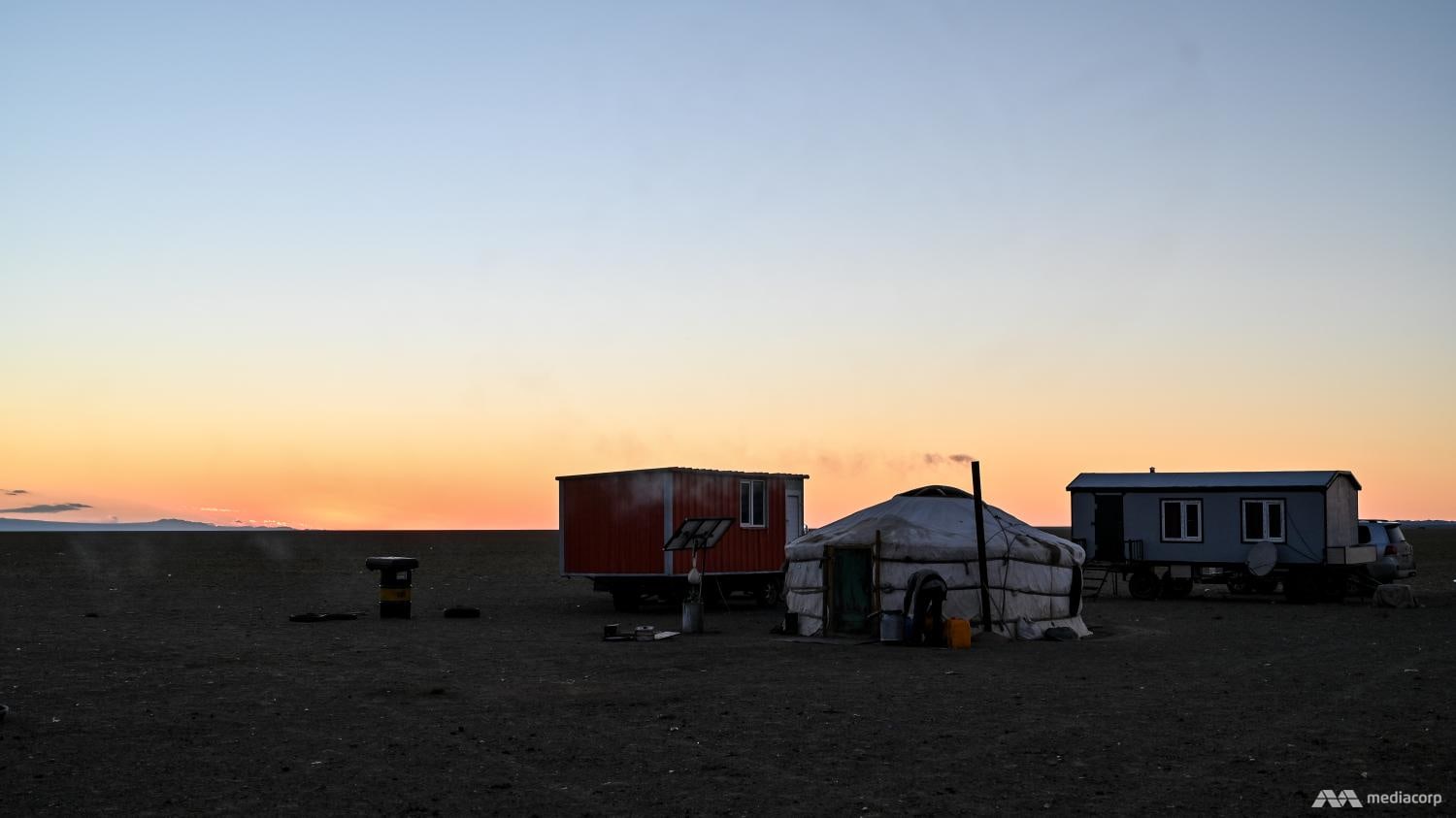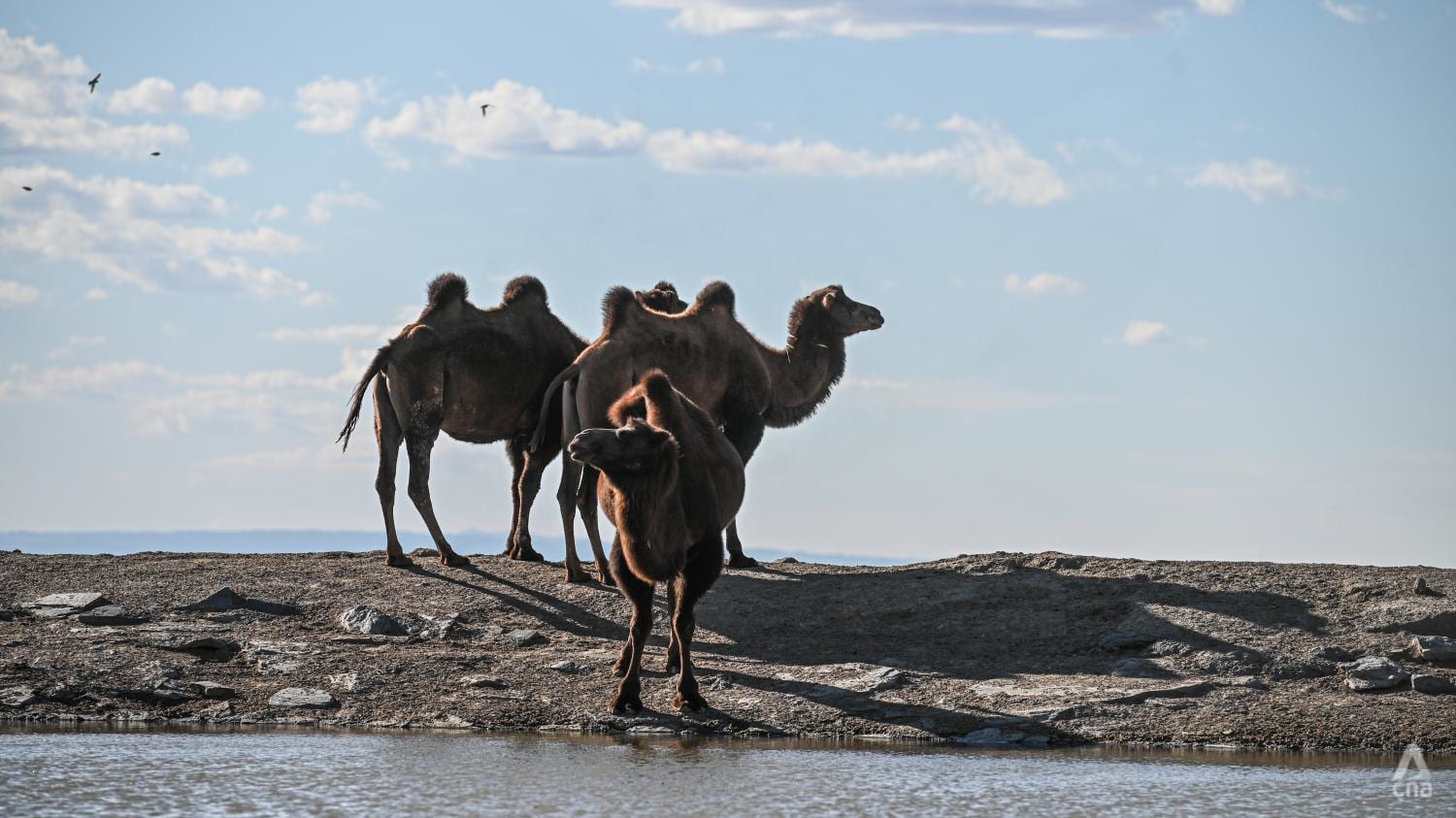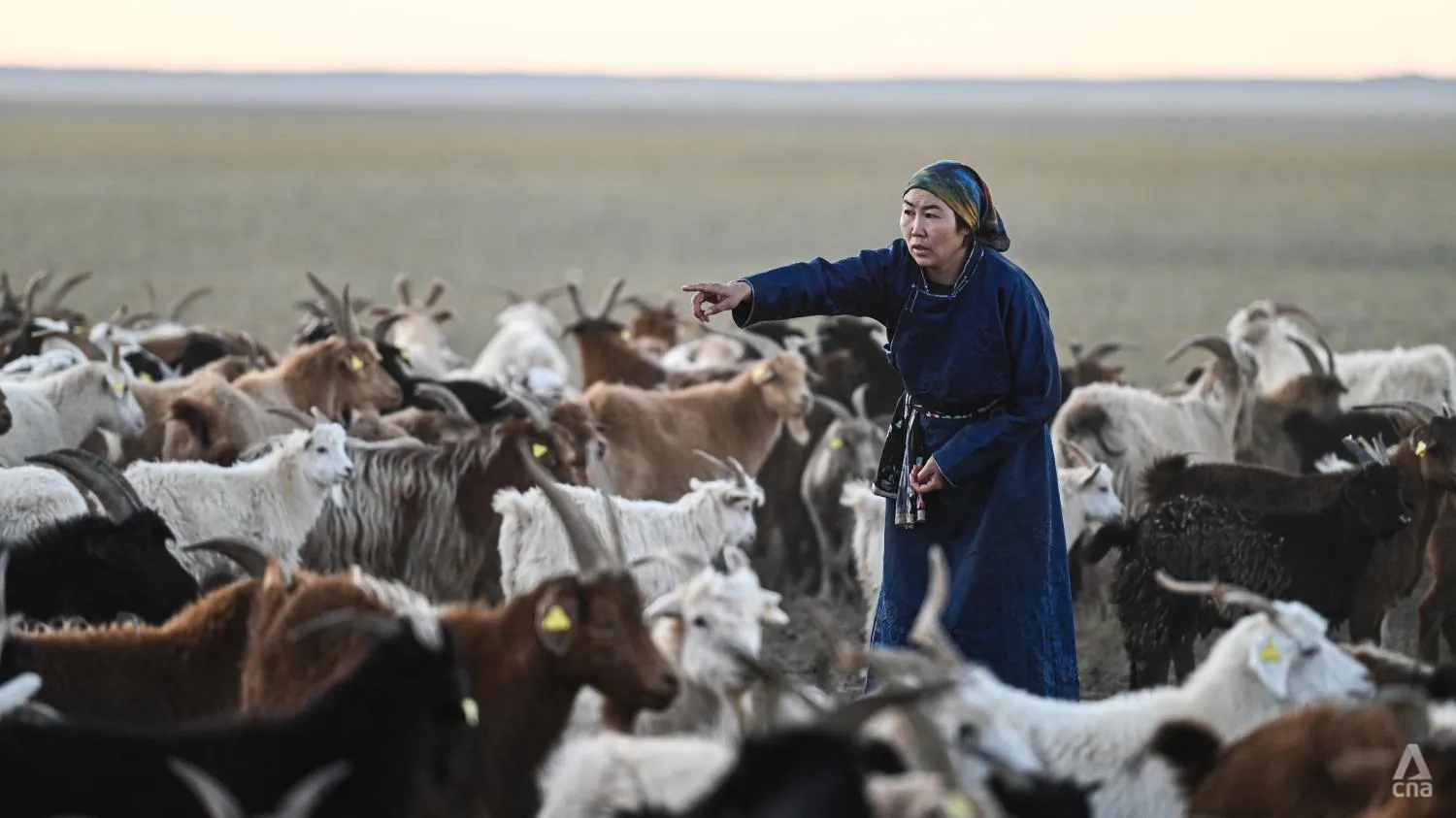Work starts before sunrise in the southern Gobi. Summer has faded here but the sky is still wide and bright ahead of the dark days of the looming colder months.
Still, the temperature sits close to freezing point, enough to bite at exposed hands.
This has been life for decades for herders Nergui Narantsetseg and Munkhtuul Banzragc, a married couple from the desert region close to the Mongolian border with China.
A few hundred goats amble close to their settlement. The couple’s lives revolve around a traditional domed tent known as a ger. There is also a portable shipping container where they sleep and they own a Toyota Prius, the new workhorse for herders who are always on the move.
As Nergui circles on a motorcycle, his wife Munkhtuul wades through the herd with purpose. She eyes her target, a young buck, before launching into a chase.
Dust flies as the goats scramble. Within minutes, the chosen animal is captured ahead of its slaughter.
It is a reluctant kill but there will be meat for a while now for the couple and their two helpers.

Life is simple and harsh and it always has been in the near featureless expanse of the Gobi.
But the past few years have tested the resilience of these proud, determined people.
Climate change is colliding with human-driven impacts in the desert. The sands are ever expanding in a phenomenon called desertification. Water is sparse due to worsening periods of drought and more regular sandstorms bring more erosion and send airborne fragments to neighbouring countries.
These combined factors place the very future of the unique national tradition of nomadic herding – and backbone of Mongolia’s food production – in jeopardy.
Nergui and Munkhtuu are strangers in this land. Their home is hundreds of kilometres away, deeper south. Over there, the conditions have become too difficult and they made the choice nearly two years ago to abandon hundreds of animals and take what they could to more hopeful pastures north.

















